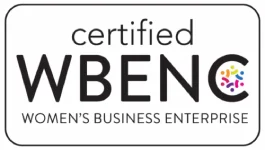4 Concepts to Construct Company Culture

4 Concepts to Construct Company Culture
February 25th, 2020
When we think of employee retention, it often seems like we think of the same few strategies: employee benefits, PTO, food, etc. However, the company culture surrounding a team seems to matter just as much. Your employees spend a considerable amount of their time at work, so one of the simplest tools at your fingertips when it comes to retention is offering them your consideration, and an enjoyable environment that they can be a part of. Here are some simple ways to make your team members feel more involved in your office.
Create a Culture Committee
If you’re in HR, you probably spend a good portion of your year doing things like exploring different team-building ideas, finding volunteer opportunities and discovering ways to welcome new members to the team. Truthfully, the people that can help you the most with these tasks are your staff themselves. Creating a culture committee is a great way to make your team feel like they have some say in the process. They’ll tell you what they do like, they’ll tell you what they don’t like, and they’ll give you fresh ideas to add to your toolbox.
Volunteer as a Team
It is no surprise that 55 percent of employees would choose to work for a socially responsible company, even if their salaries were less. However, it is inspiring to find out that 50 percent of Millennials alone were influenced to accept a job based on that company’s involvement with different causes. There are plenty of charities that your employees can resonate with, so it is important to determine what causes are important to them. Your team could volunteer at a 5K, a food bank, or even within the office with a canned food drive. In most cases, employees are working long days, getting home late, and still must care for their families, worry about their household responsibilities, take time to relax. Employees today have little to no time to themselves outside of work, and probably don’t have much time to volunteer. With that being said, 71% of surveyed employees say it is imperative or very important to work where culture is supportive of giving and volunteering, and we attribute that partially because it gives them a chance to make a difference while not adding on any additional stress of running around, and making time for their daily duties.
Celebrate the Big Things
A win for your teammate is a win for your team. Celebrate those wins as often as possible! You can start out by celebrating team birthdays and work anniversaries on a monthly basis. If a coworker is gearing up for their big day, you can throw a mini wedding or baby shower. Even a small fruit basket can let them know you’re thinking of them. If these are all not feasible options given your budget, simply sending a thoughtful email or recognizing their accomplishment can show that you value them beyond their turnaround time. Employees don’t want to be just another person, taking up a seat. If they don’t feel like they matter to the company, or that they’d be easily replaceable, it will be hard for them to remain happy and productive in their position. Therefore, it is crucial for any employer’s success to take an extra few minutes and recognize an employee’s hard work or major achievements int their lives.
And When You Do, Order Food…
Whether it’s for a training meeting, an event, or “just because,” take your team into account. If your budget allows, a good team will always appreciate a free meal. Long meetings are tiring, and sometimes this means an employee forfeits their lunch in order to get their work done. Every once in a while, it wouldn’t hurt to show them you care by ordering food. If you already do this, consider changing it up. It’s easy to get in the routine of ordering from the same old place, but people get bored quickly. Send out a survey to all-staff asking what they’d like to try and pick the top request. Pick a new person each time you go to order and have them decide what you’ll eat. No matter how you go about it, another great way to show your employees consideration is to recognize food restrictions. For example, if an employee has gluten sensitivity, ask them what they are able to eat. Overall, these simple considerations can truly make all the difference.
Innovative HR Consulting
The Innovative Human Resources team partners with organizations to provide solutions to the exceedingly challenging demands of today’s business environment. Our team develops a customized approach to suit your organization’s needs. We provide you with support and solutions for:
- Policy and employee handbook development
- HR Compliance, Audits, and Assessments
- Compensation and rewards strategy
- Harassment, discrimination, diversity and inclusion training for managers and employees
- Navigating challenging HR and compliance issues
- HR department outsourcing
- Human capital and culture
To learn more, visit here.
Categories
Archive








